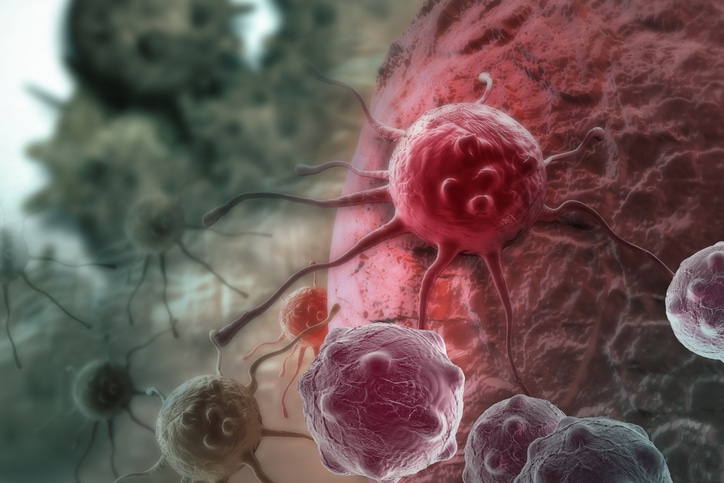Smoking, family history, sunburn, chemical exposure… Most of us know these things cause cancer.
But there’s one grave risk factor that flies under the radar. It can increase a woman’s chances of breast cancer by 600%. Only the BRCA gene and age carry a bigger risk.1
Most women have no idea that breast density is strongly linked to cancer. A recent survey by the University of Virginia School of Medicine found that just 1 in 8 women were aware that breast density is a cancer danger. And just 1 in 5 knew that dense breasts reduce the ability of mammograms to find tumors.
Breasts are made of fat and glandular tissue. The more glandular tissue and less fat you have in your breasts, the denser they are…and the greater your chances of breast cancer.
You can’t tell if your breasts are dense by feel. Only a diagnostic test can determine your density.2 And you can’t change your density by losing or gaining weight.
Recommended for You: The Anti-Cancer Cocktail
Health “experts” say this drink is bad for you. But a 2011 Harvard study found that men who drink 1–3 cups daily reduce their risk of prostate cancer by 30%. And research from Boston’s Brigham and Women’s Hospital and Harvard Medical School shows this beverage lowers the risk of basal cell carcinoma by 20%.
It’s no wonder that Women’s Health magazine calls it “the drink that fights cancer.” Best of all? Guaranteed you already have some in your home. More details found HERE.
How Dense Are Your Breasts?
Breast density is categorized into four types. They range from least to most dense:3
Type 1: Breasts are almost entirely fat with less than 25% glandular tissue.
Type 2: There is scattered glandular tissue making up 25-50% of the breasts.
Type 3: Glandular tissue is prevalent throughout the breasts. Type 3 breasts may be called “heterogeneously dense.” Glandular tissue makes up 51-75% of the breasts.
Type 4: The highest category of breast density. It means the breasts contain more than 75% glandular tissue.
It’s important that all women know whether they have dense breasts. Thirty states have laws that require radiologists to tell women about their breast density when they have cancer screenings.
What Should You Do If You Have Dense Breasts?
No one knows exactly why breast density is a cancer risk. But there are sensible steps you can take to protect yourself if you have dense breast tissue:
- Lower your other risk factors. If you smoke, quit. Try to stay at a healthy weight. Exercise at least a little bit every day. Don’t have more than two drinks a day.4
- Consider mammogram alternatives. Dense breasts make it more difficult for mammograms to detect tumors. That’s because both glandular tissue and tumors show up as light areas on mammogram images. What’s more, mammograms expose you to radiation that can actually cause cancer.
Consider two other screenings that don’t use radiation. They are breast ultrasound and thermography. Ultrasound uses sound waves to detect tumors. Thermography detects heat emitted by tumors.5
And here’s something else you should know about cancer…
A small group of holistic doctors were quietly discovering cancer breakthroughs. Then, when word of their effective therapies started getting out, something terrible started happening… The doctors started disappearing.
Get all the details HERE.
In Good Health,

Angela Salerno
Executive Director, INH Health Watch
Like this Article? Forward this article here or Share on Facebook.
References:
1http://jnci.oxfordjournals.org/content/92/6/443.full
2http://www.prevention.com/health/health-concerns/14-states-require-notification-breast-density
3http://breast-cancer.ca/densitbi-rads/
4http://www.cancer.org/cancer/breastcancer/detailedguide/breast-cancer-risk-factors
5ttp://www.prevention.com/health/health-concerns/14-states-require-notification-breast-density

